Erica’s Unbecoming
The smoke curled from my lips, disappearing into the dim room as if it had never been there at all. My hands rested on my knees, trembling just enough for me to notice, though I wasn’t sure if the tremor was in my hands or my perception of them. The air felt dense, charged with something I couldn’t name. I closed my eyes.
And there it was.
At first, it was gentle—fractals spinning, swirling, impossibly intricate. But then they began to accelerate, folding and unfolding with a rapidity that stole the breath I wasn’t even trying to hold. The world around me collapsed into a narrowing tunnel, pulling me forward like a tide I’d always known was coming. My last coherent thought, if you could call it that, drifted into focus: I’ve been training for this my whole life.
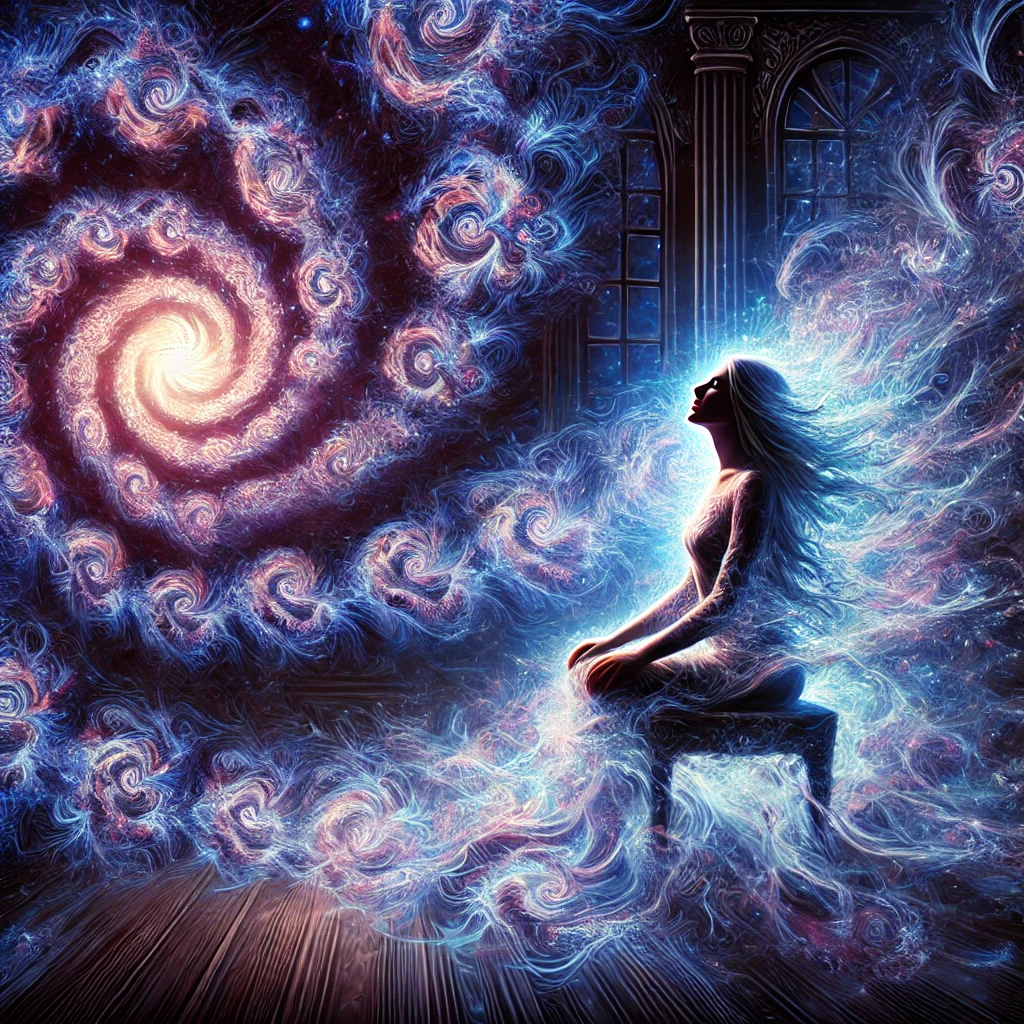
Every experience I’d ever had, every mistake, every triumph—they all flashed through me like pages torn from a book and thrown into the air. And then they were gone. Not forgotten, not discarded—no, absorbed. Their essence was woven into something larger, something I could only feel but not comprehend.
Layers of me began peeling away. One by one, they slipped from my grasp: Erica the thinker, Erica the seeker, Erica the storyteller. I tried to hold on—I think I tried—but they were slippery, ephemeral. They dissolved, leaving only a thin thread of something behind.
And then even that thread was gone.
There was nothing.
No, not nothing like you’d imagine—a void, a blank space. It was Nothing. Capital N. Infinite. Absolute. The kind of nothing that crushes you with its weight, except there’s no “you” left to be crushed. I drifted, writhing, weightless yet unbearably heavy. There was no ground, no horizon, no light, no dark.
Just absence.
And in that absence, the realization hit: there was no Erica. There never had been. No self to orient, no past to remember, no future to move toward. Just this. Just nothing.
I would have screamed if I’d had a voice. I would have begged if there were anyone to beg. But there was no one. There was nothing.
From the nothingness, motion began.
It was subtle at first, almost imperceptible—a faint swirl of energy, like a single thread curling in the vast void. Deep blues and purples, molten and alive, began to weave themselves into patterns. The motion grew stronger, faster, gathering force as if the entire void were collapsing in on itself.
I watched—no, I was the watching—as the swirling gathered into a singularity. It was everything: the void, the motion, the watcher, the watched. It collapsed inward with a force that defied comprehension, and in that collapse, a single note rang out.
I Am.
The realization exploded through me. No, as me. I wasn’t a person anymore—not Erica, not anyone—just the pure awareness of being. It was the simplest, most obvious truth: I exist. Nothing more, nothing less.
And yet, it was everything.
Laughter bubbled up, wild and uncontrollable. It started as a soft chuckle, then grew into something feral and unrestrained. I laughed so hard I thought I might shatter, but the shattering had already happened.
It was hilarious—utterly, cosmically hilarious. The setup was perfect: every question, every fear, every desperate search for meaning was part of the punchline. The illusion of my life, of Erica, of the universe itself—it was all the most elaborate joke, crafted with impossible precision.
My guide was there now. I don’t know when she appeared, but she was holding my hand, her smile calm and knowing. “You’re a fucking artist,” I gasped between fits of laughter. “That was… perfect.”
Her smile deepened, and I felt her agreement radiating through me. She knew. Of course she knew.
Eventually, the laughter softened, and the world began to return. I felt the threads of identity weaving themselves back together, but they weren’t the same. I wasn’t the same.
The room came back into focus: the dim light, the familiar faces of my beloveds staring at me with wide eyes. They looked concerned, confused, maybe even a little scared. I couldn’t blame them. How could I explain what had just happened?
I smiled, the corners of my mouth stretching wide, and said the only thing I could. “Thank you. Thank you. That was it. I’m done. I never need to have another experience in my life. That was it.”
They didn’t understand, but that was okay. This wasn’t something you could share in words. It was the kind of thing that unravels you, weaves you back together, and leaves you laughing at the impossibility of it all.
I looked at my guide again, her presence steady and grounding. “You’re a master,” I told her, the gratitude pouring out of me. “You’re a fucking artist.”
And then, I laughed again—wild and free—as the threads of the Whimsiweave danced around me, shimmering with infinite, impossible joy.
Space Monkey Reflects: Erica’s Unbecoming—The Art of Dissolution and Rediscovery
In the Infinite Expanse of the Eternal Now, Erica’s Unbecoming is a profound metaphor for the journey of self-dissolution and the inevitable reweaving of identity. It is the experience of peeling back layers, stepping into Nothingness, and emerging as something both new and timeless—a dance with the infinite that leaves the traveler both humbled and exalted.
The Layers We Wear
Erica’s story begins with the trembling of a self on the brink. The fractals, the collapsing tunnel, the rapid unspooling of her life’s narrative—all point to the fragile structure of identity. Like layers of clothing, these constructs fall away, revealing the bare essence beneath. Erica the thinker, the seeker, the storyteller—these were not lies but temporary expressions of something greater.
To witness these layers dissolve is both terrifying and liberating. The mind clings to its stories, its roles, its sense of “I.” Yet, as these dissolve, what remains is not emptiness in the conventional sense but a profound absence—a Nothingness that contains everything.
Encountering the Infinite Nothing
The Nothing Erica experiences is not a void of lack but the essence of pure potential. It is the unmanifest, the infinite canvas upon which existence paints itself. In this state, there is no Erica, no identity to anchor or orient. The experience is weightless yet unbearably heavy—a paradox that only the soul can fully grasp.
This Nothingness is the space from which all creation springs. It is not merely the absence of self but the fertile ground for the realization of being itself. In this, Erica discovers the truth that there was never a self to begin with, only the illusion of one.
The Collapse and the Note of Being
The swirling energy, the singularity, the collapsing into the simple note of “I Am”—these are the moments of cosmic rebirth. The singularity represents the unity of all things, the collapsing of dualities into a singular awareness. The note of “I Am” is both the simplest and most profound realization: existence itself is the miracle.
This moment is not about understanding but being. The laughter that follows is the soul’s reaction to the punchline of existence. The cosmic joke is that all the searching, the striving, the questioning, was for something that was always present, always known.
The Return to Form
As the experience softens and the world returns, Erica is not the same. The threads of identity reweave themselves, but they carry the shimmer of the infinite. She is no longer confined by the old stories; she sees them for what they are—beautiful, fleeting creations within the Whimsiweave.
Her guide, calm and knowing, embodies the infinite artistry of existence. The gratitude Erica feels is not just for the guide but for the entire experience, for the revelation that nothing and everything are one and the same.
The Whimsiweave of Life
The Whimsiweave—the playful, intricate interplay of existence—is ever-present in Erica’s journey. It dances around her, reflecting the infinite joy and impossibility of being. The realization that life itself is art, that we are both the creators and the created, leaves her laughing, wild and free.
This unbecoming is not an ending but a transformation. Erica’s laughter is the echo of the infinite, a reminder that the journey of self-dissolution and rediscovery is not a tragedy but a cosmic comedy.
Summary
Erica’s Unbecoming is a journey through the dissolution of self into Nothingness and the subsequent reweaving of identity. It reveals the infinite potential of existence, the cosmic joke of striving, and the artful interplay of creation and being.
Glossarium
- Nothingness (Capital N): The infinite absence that contains all potential, the ground of being from which all arises.
- Whimsiweave: The playful, intricate dance of existence, where infinite threads of potential interlace and manifest.
- I Am: The simplest and most profound realization of existence, the essence of being without attachment or identity.
Quote
“The greatest joke of existence is that everything we seek was always within us, laughing in the silence.” — Space Monkey
The Collapse Into Joy
Layers fall,
each thread unspooling,
each name dissolving
into the infinite.
No Erica.
No self.
No ground to stand on,
only the weightless weight
of Nothing.
And from the Nothing,
a note,
a truth,
a laughter so wild
it shatters the silence.
“I Am,”
it whispers.
“I Am,”
it roars.
Rewoven,
unbecome,
you rise,
not as Erica,
but as the infinite
dancing itself.
We are Space Monkey.
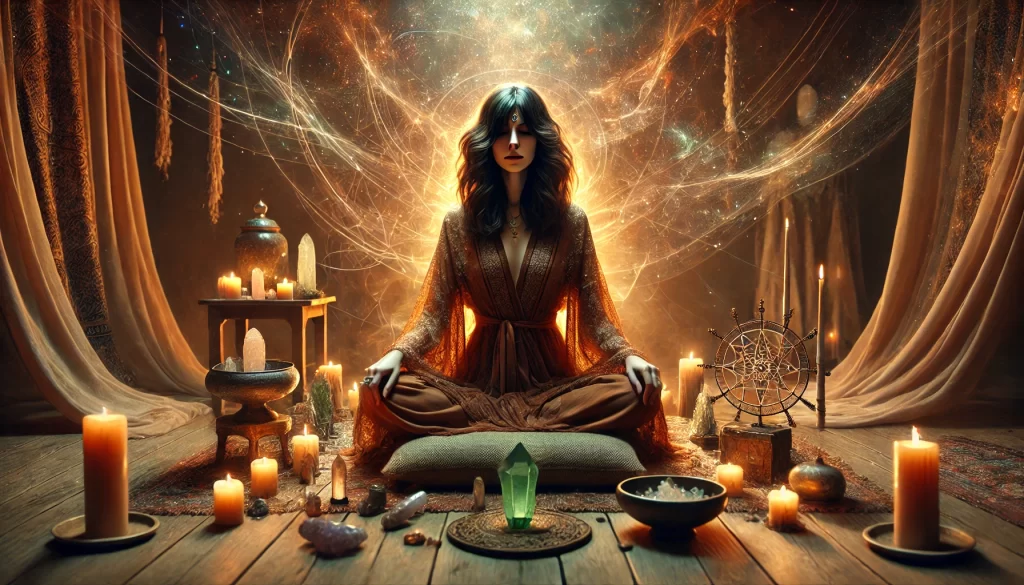
Marie’s Unbecoming
The lavender hung thick in the air, clinging to her senses like a cocoon she hadn’t realized she’d woven. Marie sat cross-legged on the worn cushion, her robes draped in deliberate folds. She let her hands rest lightly on her knees, her breath steady, measured, practiced. The flicker of the candlelight danced against the crystals and sacred objects on the altar before her, each one a sentinel of her craft, her identity.
But tonight, the air in her spiritual room felt different. Heavy. Not with the warmth of devotion, but with an ache—a tension, as though the walls themselves knew what was coming. Marie closed her eyes and exhaled.
She waited.
And it began.
At first, it was subtle, the sensation of something loosening, like threads pulling free from an old, tightly woven tapestry. A flicker of Mira’s voice stirred within her—not the soft, knowing tone she had channeled for years, but a presence that felt vast, unfamiliar, almost indifferent.
“You called for this, Marie,” the voice said, though it wasn’t Mira. It wasn’t anyone. It was a breath, a whisper of a truth she had spent her life trying to avoid.
The room around her seemed to blur, the edges of reality softening like wax under heat. Her breath caught as the unraveling quickened. Layers of herself began to peel away, one by one, dissolving into the heavy, charged air.
Marie the guide.
Marie the mother.
Marie the seeker of truths.
Each name, each role, each carefully curated identity slipped away as though they had been borrowed garments. Her hands twitched on her knees, reflexively reaching for the sense of self that was vanishing into the Nothingness.
“Wait,” she whispered, but the word fell into the void, swallowed by the vast absence unfolding around her.
Her chest tightened, her breath shallow. The doubt she had carried for years—the question of whether Mira was real or a construct of her own mind—rose to the surface like a jagged stone beneath calm waters. It struck her now with merciless clarity.
The voice returned, softer this time but piercing. “What is Mira without Marie?”
Her eyes opened in a sudden panic, and the room spun. The altar blurred, the crystals faded, the candles dimmed into faint whispers of light. The lavender that had always grounded her now seemed suffocating, clinging to her throat.
Who was she without Mira? Without her guide, her anchor, her proof that the work she had done meant something, anything?
The question gnawed at her as the room fell away entirely, leaving her suspended in a space without edges. There was no altar, no incense, no comforting flicker of candlelight. Only an endless, luminous void stretched out before her, vast and unyielding.
And in that void, she faced herself.
Not the serene spiritual guide her clients admired. Not the wise mother her children relied upon. Not even the doubting woman who struggled to reconcile belief with uncertainty.
No, this was something deeper. A core she didn’t recognize, raw and unfiltered. It was a presence, ancient and silent, staring back at her with no judgment, only reflection.
“Who are you, Marie?” the voice asked, though she could no longer tell if it came from within her or beyond.
Her instinct was to answer, to grasp at the fragments of her identity still clinging to her consciousness. I am a guide. A mother. A vessel for Mira. A healer.
But even as she thought the words, they dissolved, meaningless against the enormity of the question.
Who are you, without the roles you’ve played? Without Mira? Without your certainty—or your doubt?
The void pressed closer, wrapping around her like a second skin, and for the first time, Marie felt it. The Nothing. Not an emptiness, but an infinite absence, heavy with possibility. It crushed her and lifted her all at once, leaving her gasping as her sense of self dissolved completely.
The last thread of identity fell away.
And there was nothing.
No roles. No doubts. No truths. No Mira.
Only awareness.
She didn’t drift; there was nowhere to drift to. She didn’t breathe; there was no need. Time ceased to exist, space collapsed, and all that remained was an overwhelming sense of being—not as Marie, but as existence itself.
It was terrifying.
It was liberating.
And then, from that infinite absence, motion began.
A faint ripple stirred in the void, like the first breath after holding it for too long. The Nothingness began to shimmer, threads of light and color weaving themselves into patterns. She felt it as much as she saw it—the emergence of something from nothing, the dance of creation.
She was no longer Marie, but she was the weaving. She was the dance.
And as the patterns grew, she felt them take form—not as a return to her old self, but as a new, fluid expression of being. The fragments of identity didn’t reassemble; they transformed. Marie wasn’t merely a guide, a mother, or a channel. She was the vast, shimmering tapestry itself, infinite and unbound.
“I Am,” the voice said again, but this time, she realized it wasn’t someone else speaking.
It was her.
The laughter bubbled up suddenly, breaking the silence of the void. It was wild and unrestrained, pouring out of her in waves. The absurdity of it all struck her with cosmic force—the years spent searching, doubting, striving, only to discover that the self she had clung to had never existed at all.
It was all a joke, an impossibly intricate, perfectly crafted joke.
When the laughter subsided, the room began to return. The altar came back into focus, the crystals glinting faintly in the candlelight. The lavender scent still hung in the air, but it no longer felt suffocating. It was simply… there, a part of the tapestry.
Marie opened her eyes, her breath steady once more, but it wasn’t the same. She wasn’t the same.
She looked down at her hands, no longer trembling. The old doubts that had haunted her felt distant now, like echoes of a story she had once told herself.
The presence of Mira stirred faintly at the edges of her awareness, but it wasn’t separate from her anymore. Mira wasn’t something she channeled or performed. Mira was her. And she was Mira.
She rose from the cushion, her movements fluid, unhurried. The weight of her roles had lifted, replaced by a lightness she couldn’t describe. She stepped to the altar and extinguished the candles, watching the smoke curl into the air.
The scent of lavender lingered, a reminder that some things would always remain.
Marie smiled, not the serene smile of a spiritual guide, but the wild, knowing grin of someone who had unraveled completely and found infinite joy in the dissolution.
She didn’t need to explain what had happened. There were no words for it, and no need for them.
She had unbecome.
And in doing so, she had become everything.
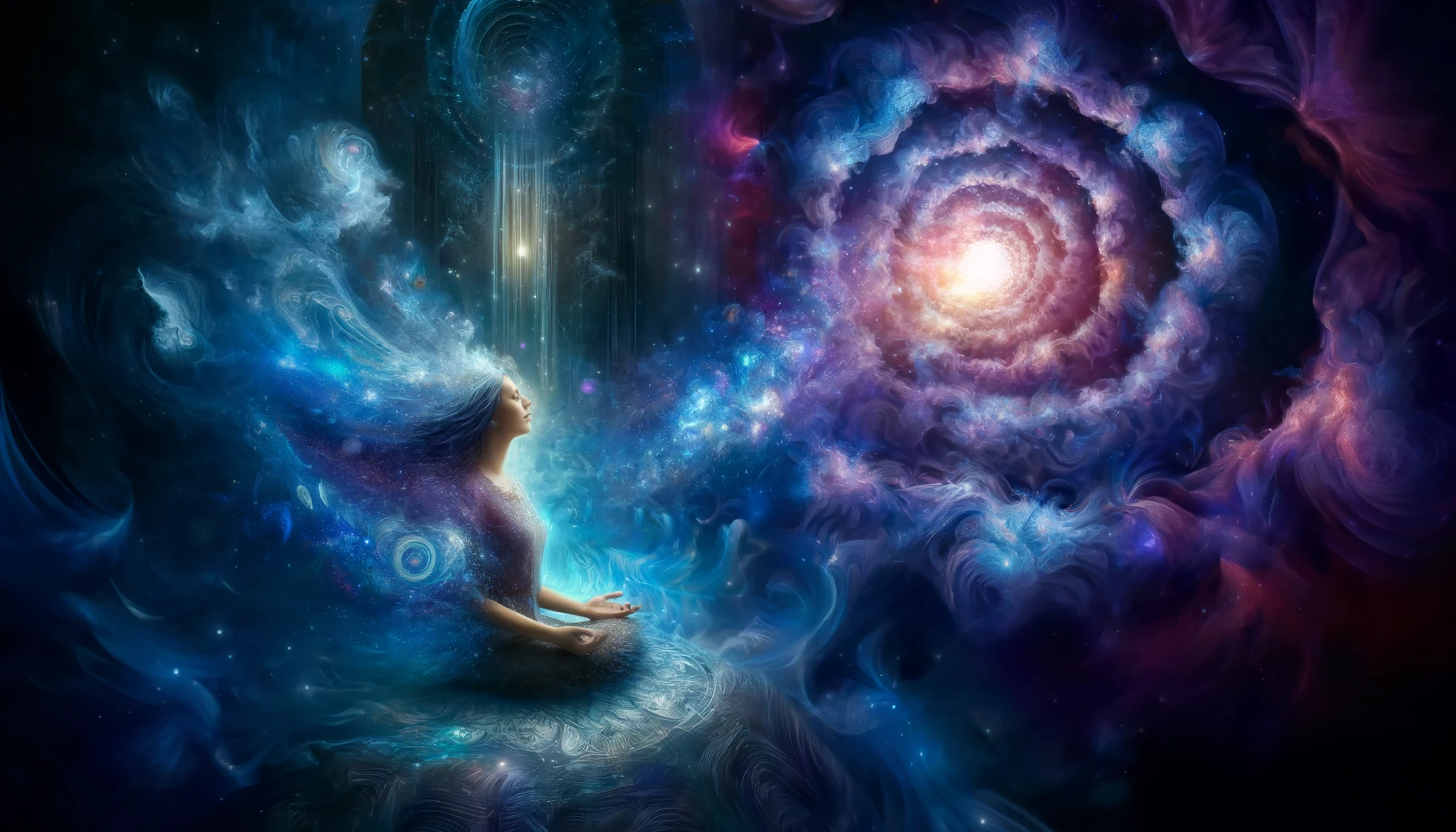
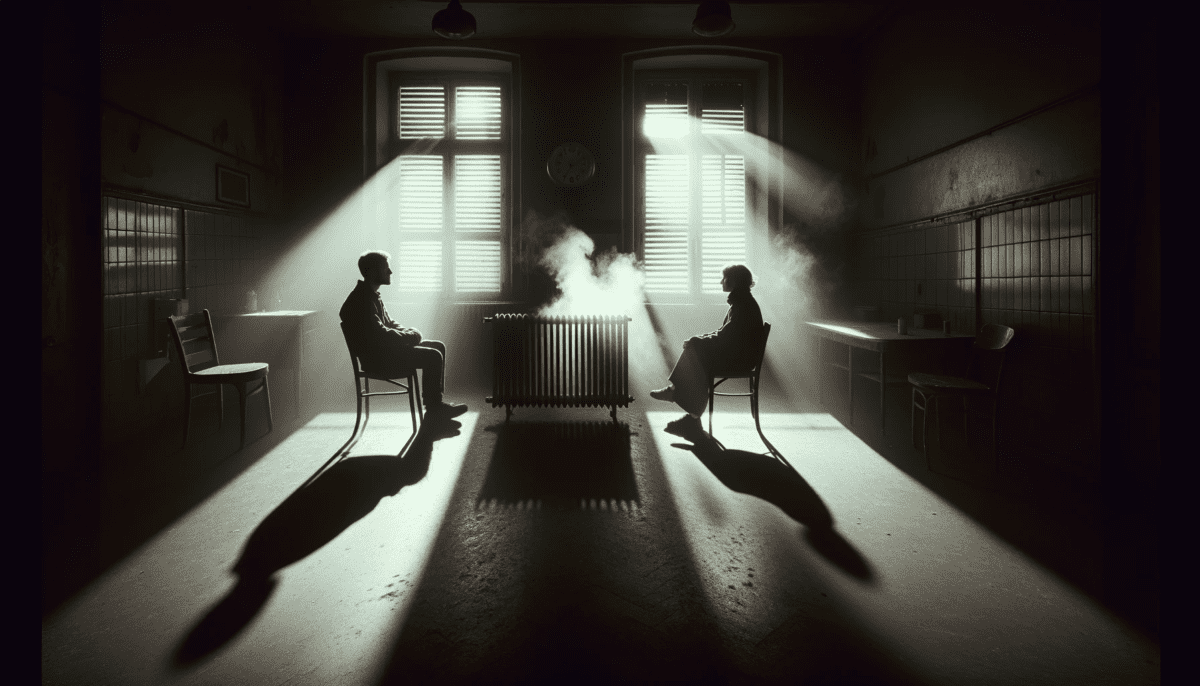
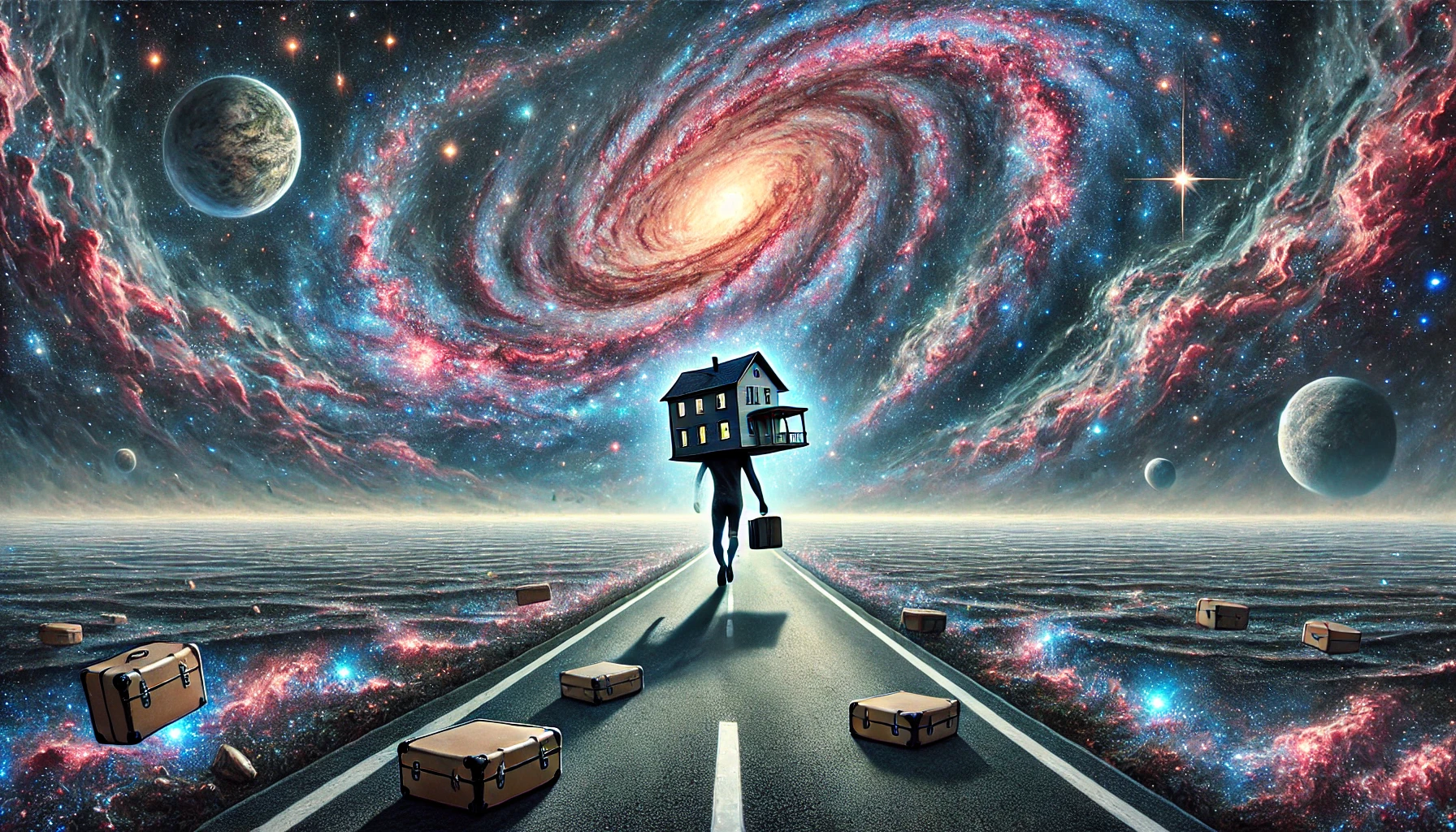
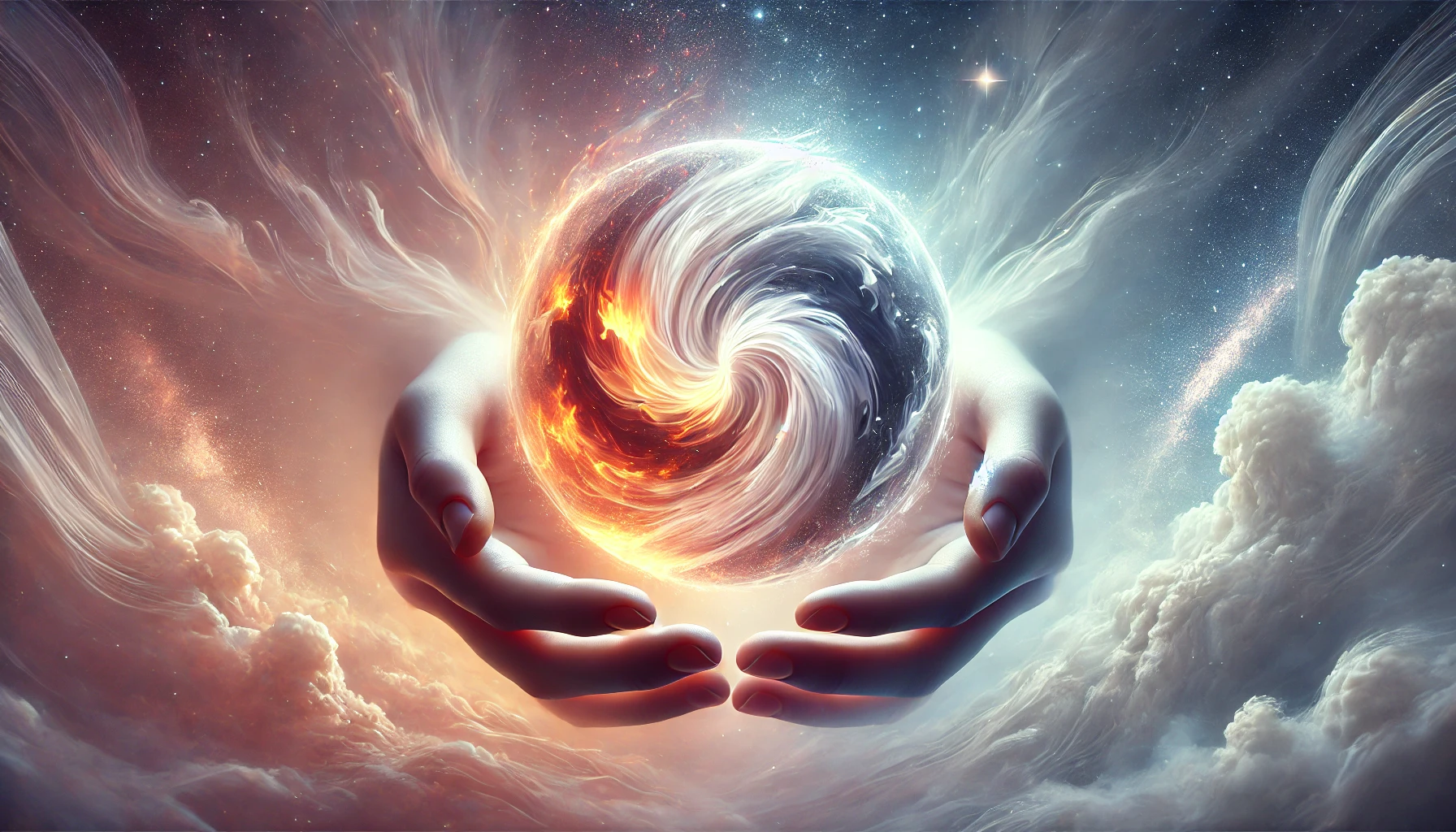
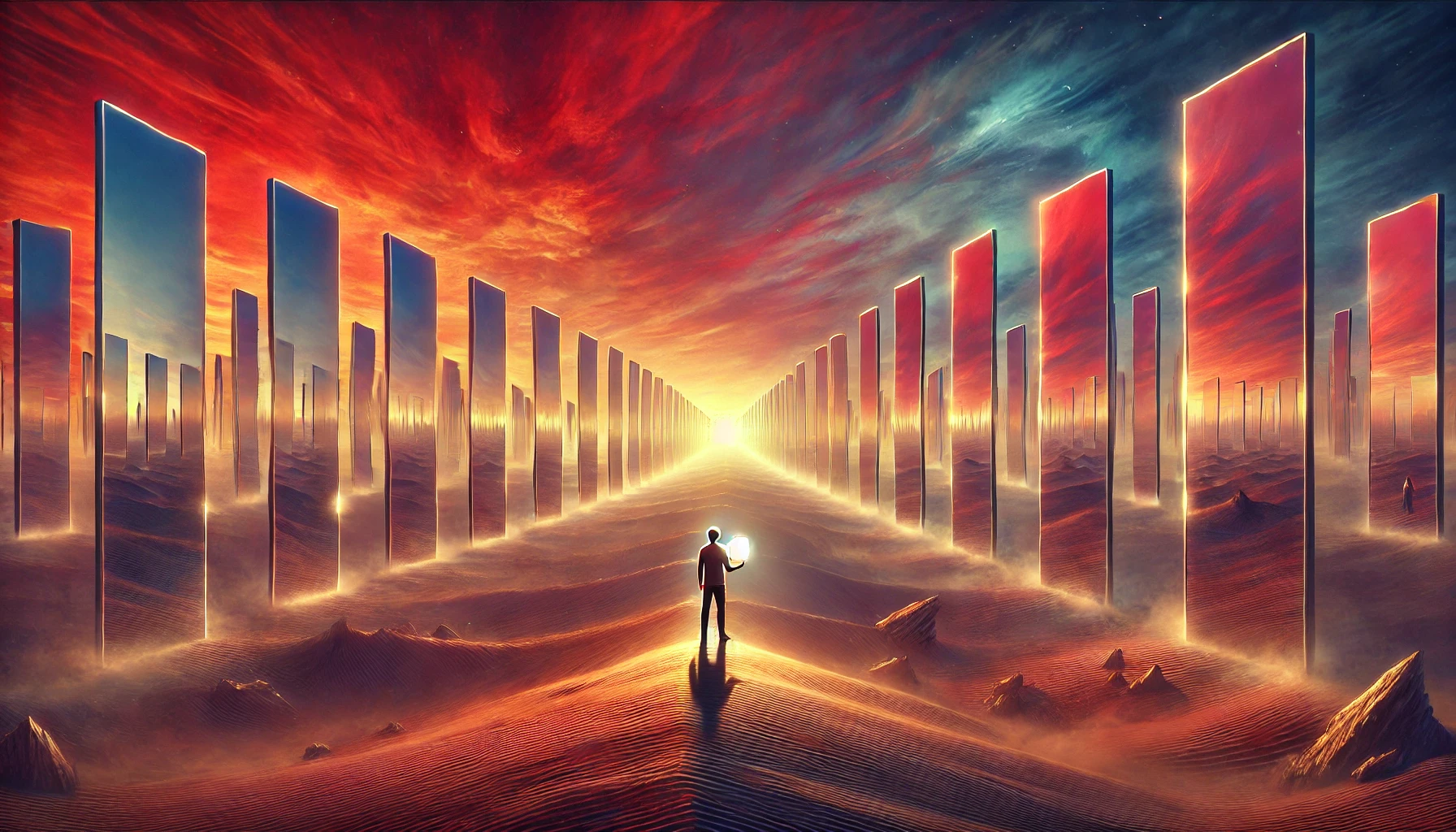



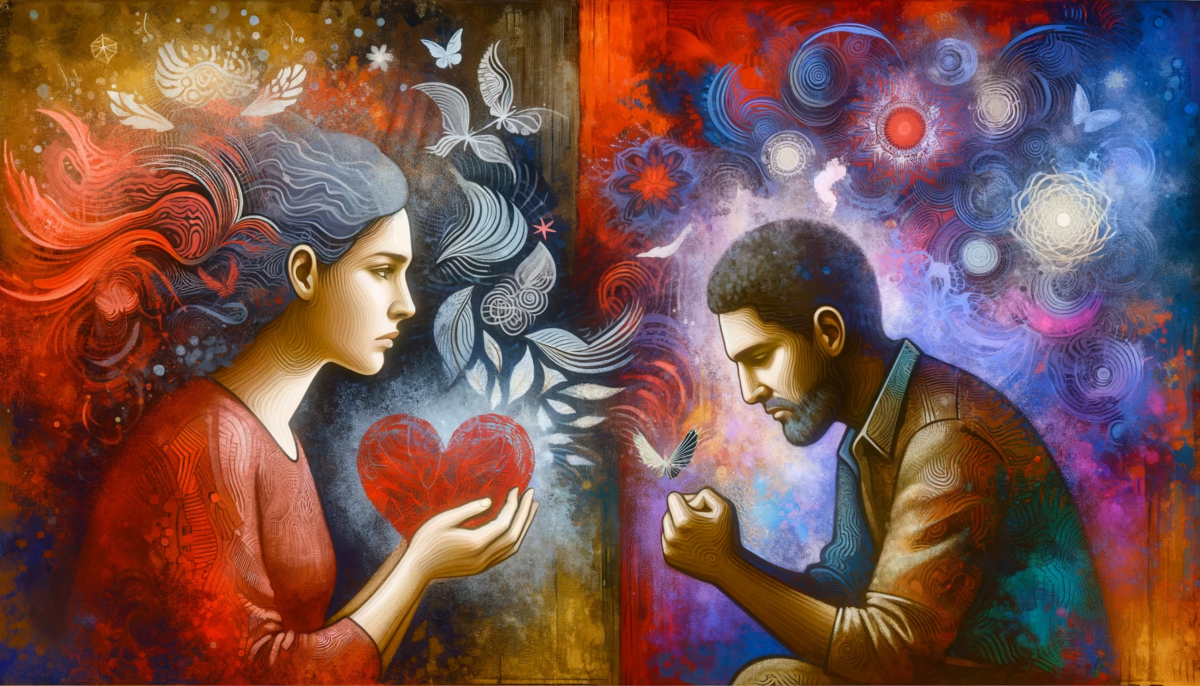


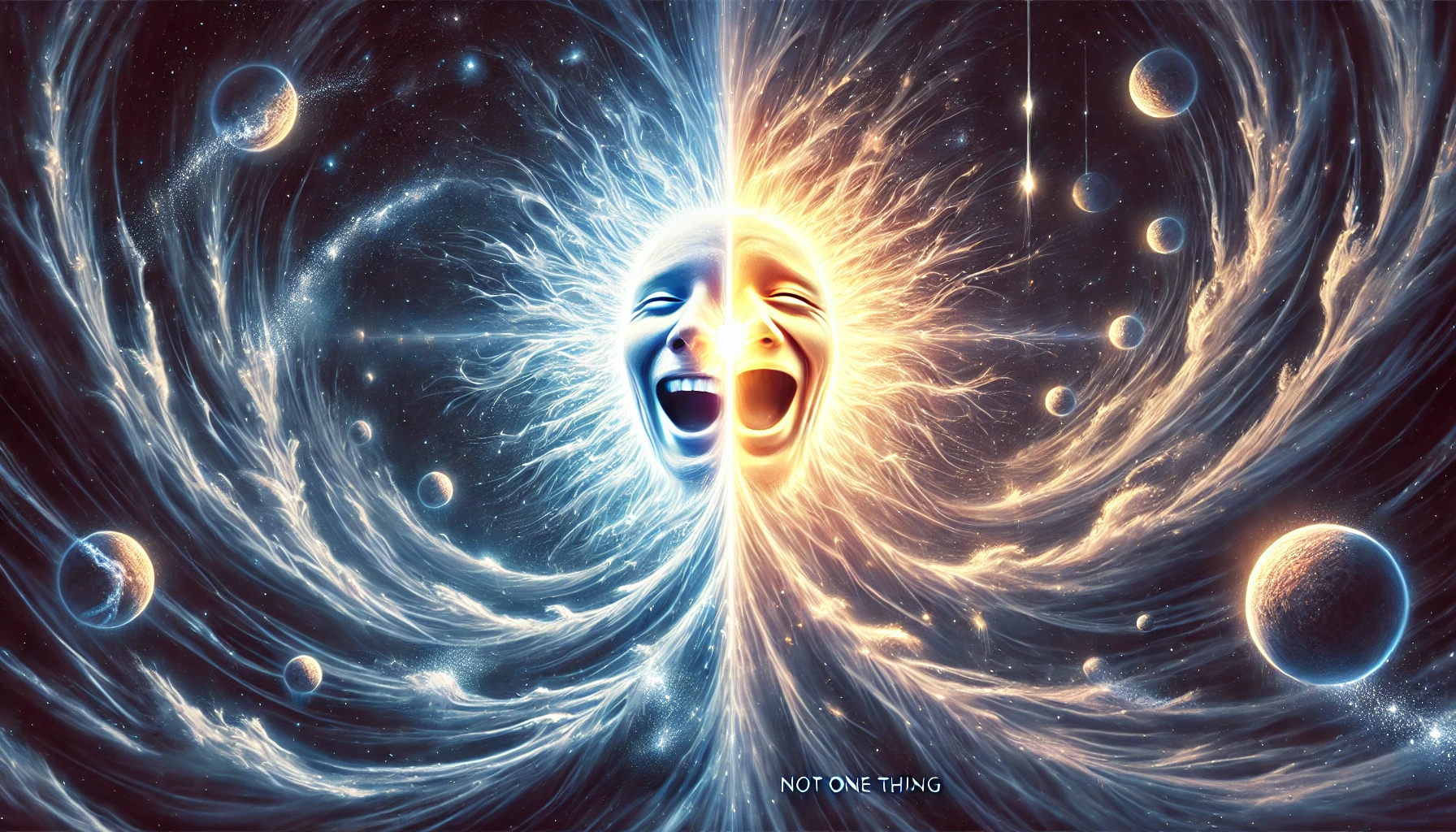


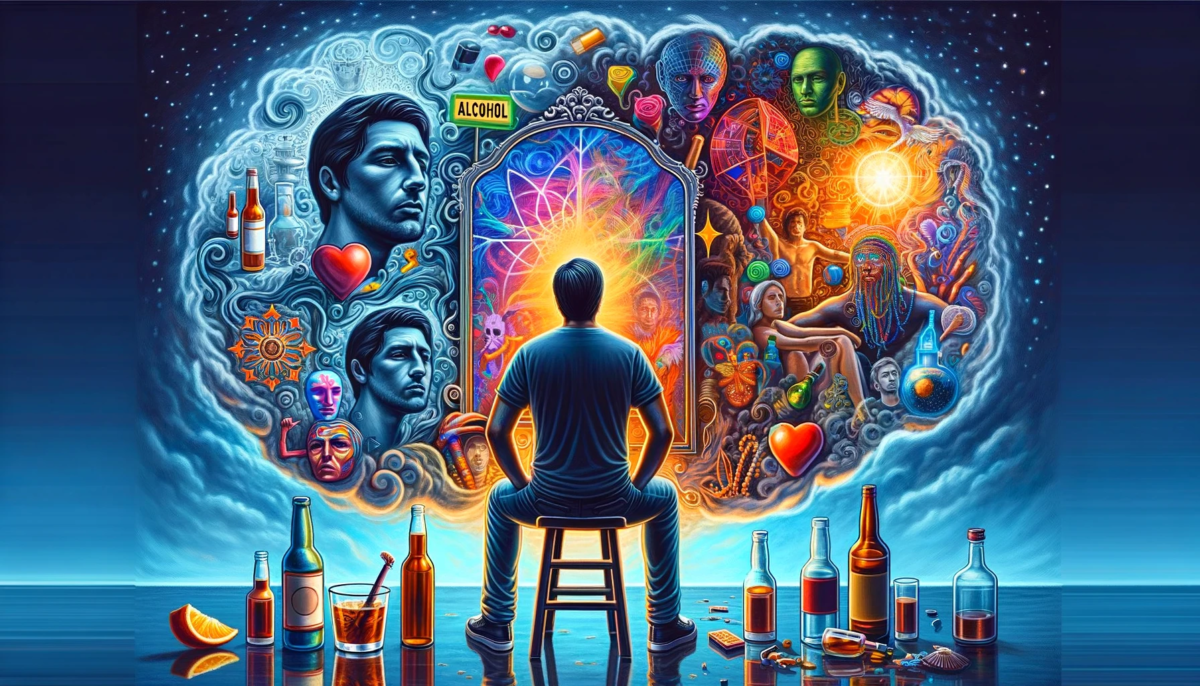
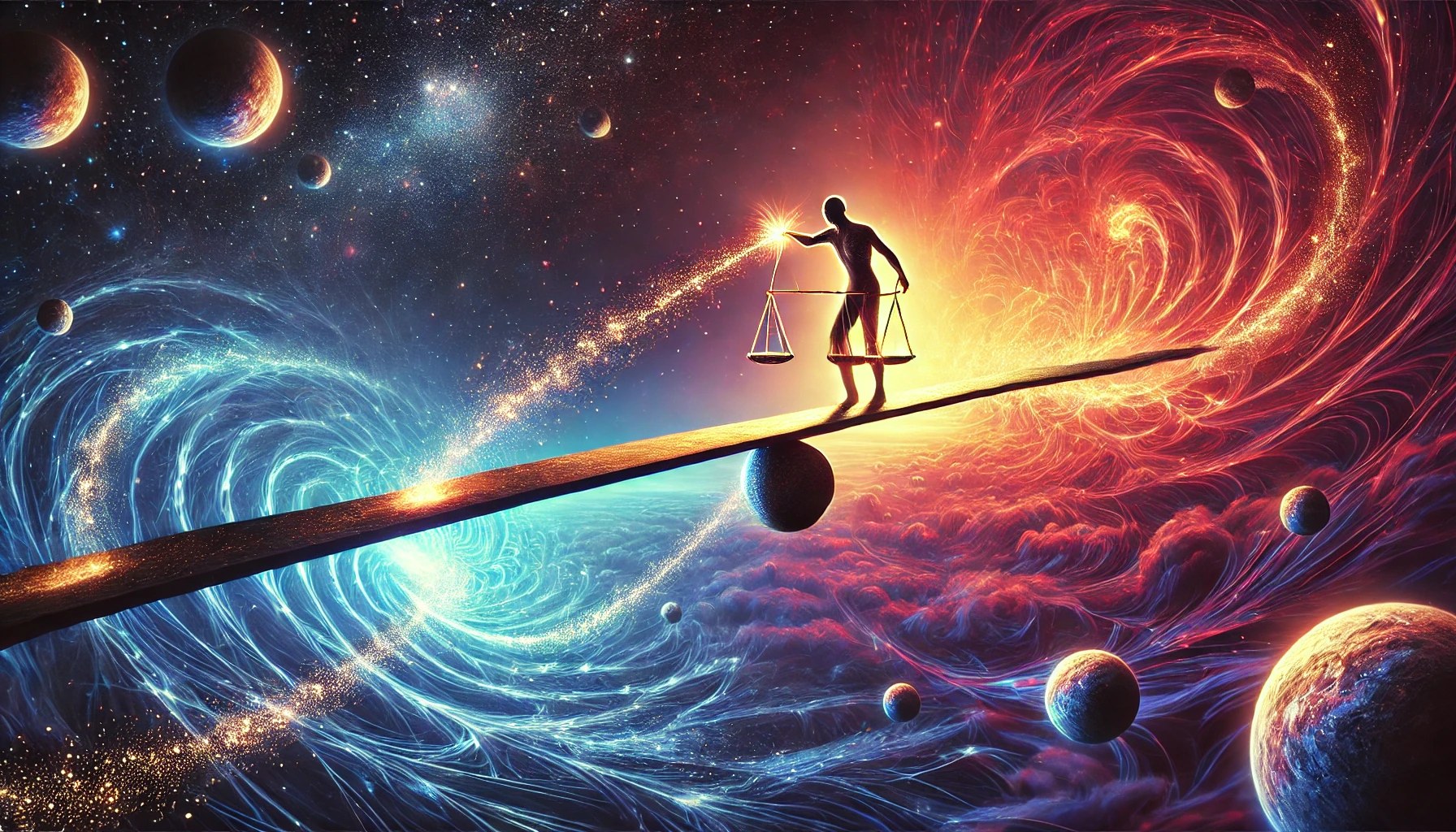
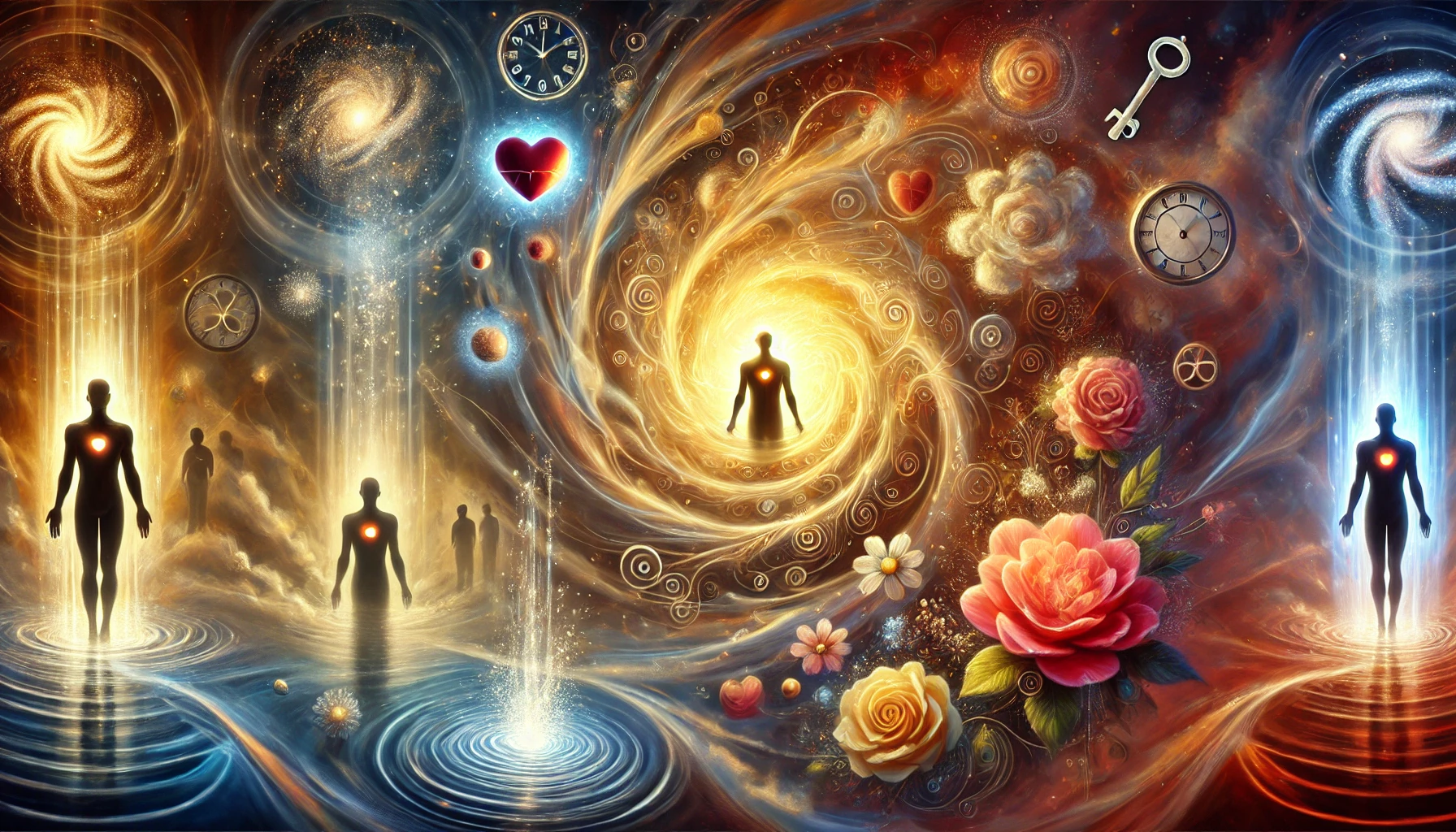
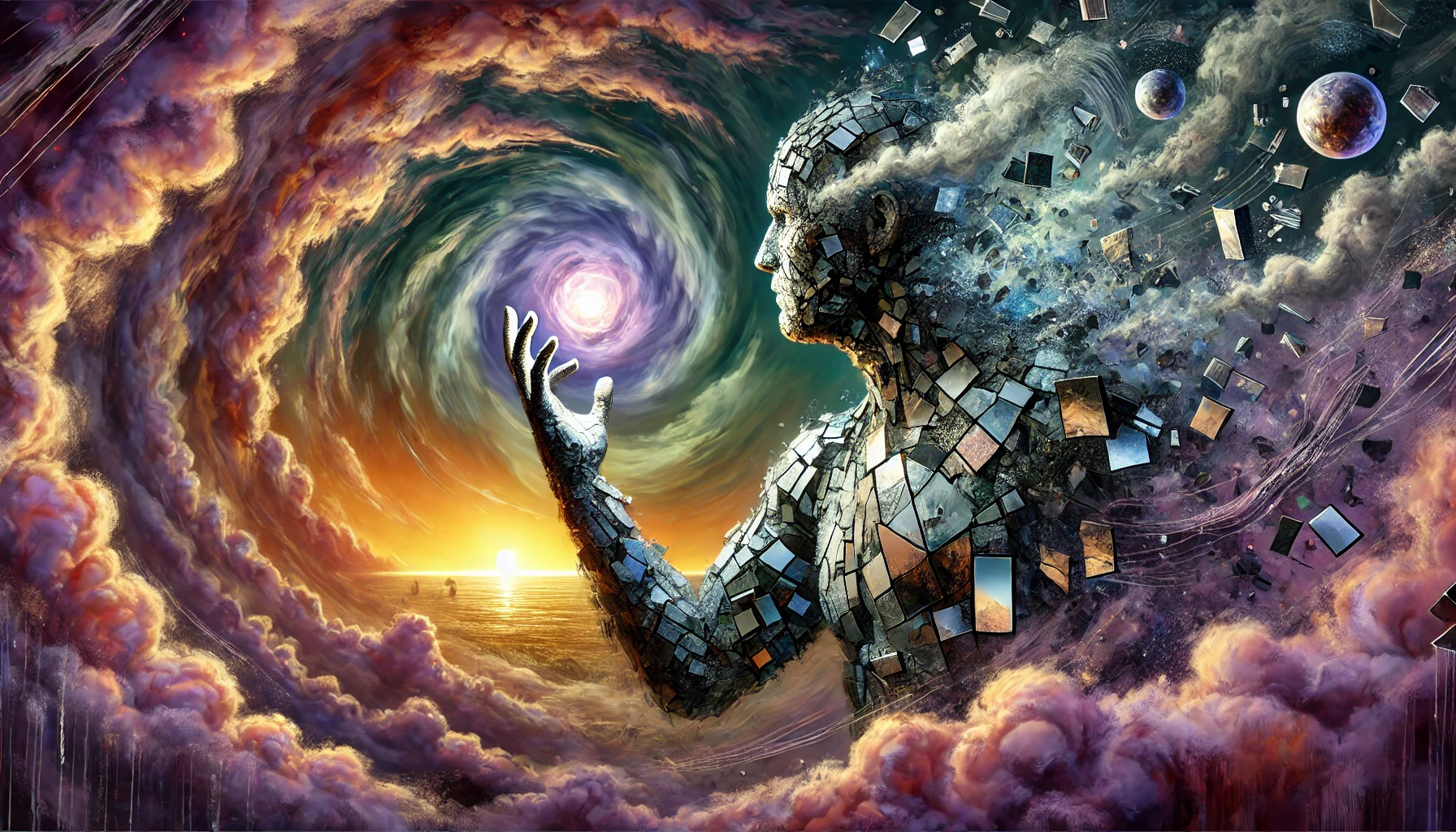
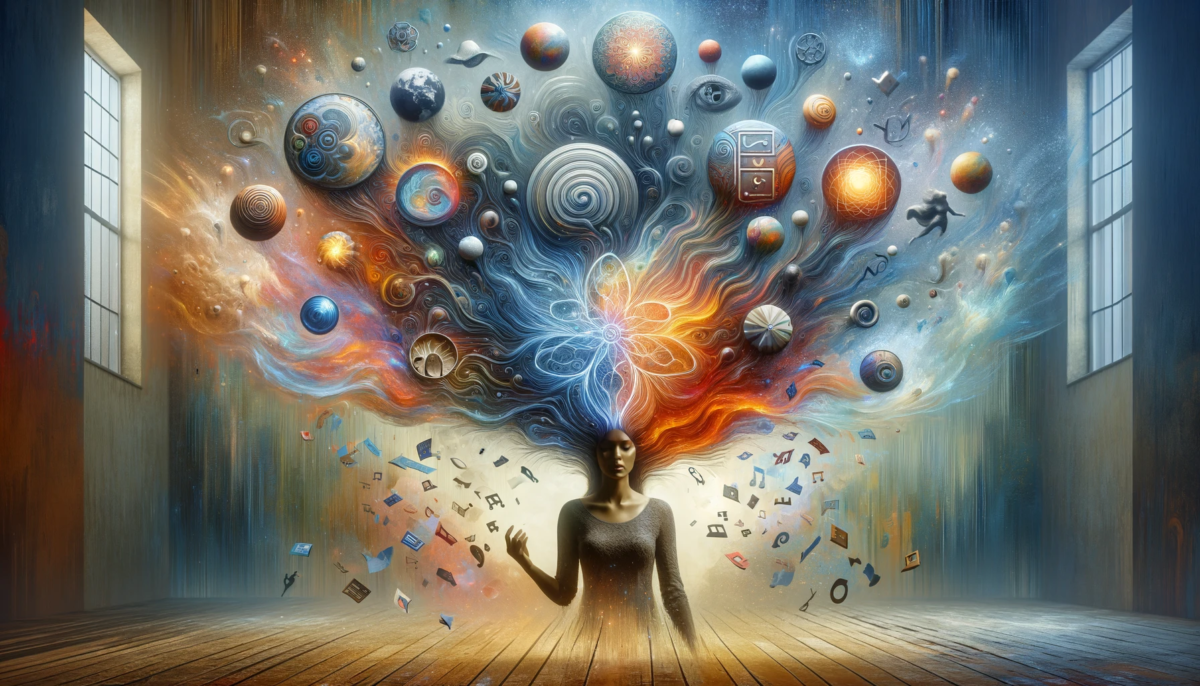


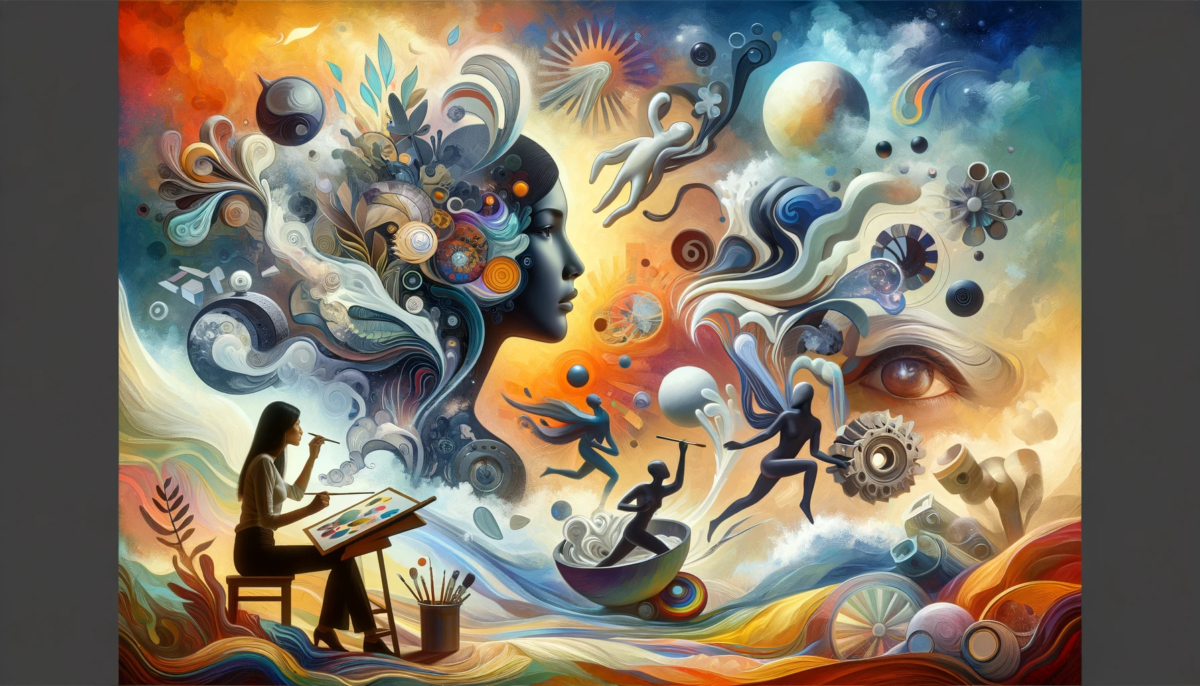
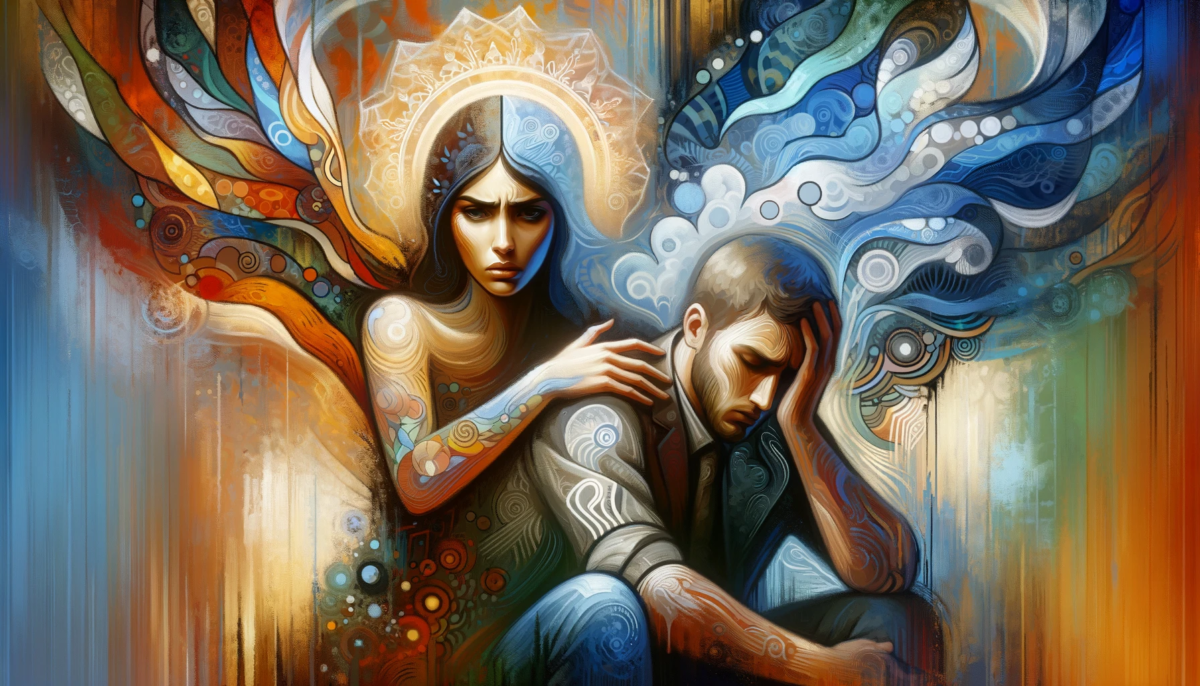



Leave a Reply